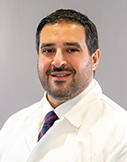Emergency medicine practice is defined by the clinical practice and activities of physicians 24/7/365. This day-to-day practice, chasing the proverbial chart rack and providing a safety net for the healthcare system is often equally rewarding and frustrating at times. A good perspective on the good being done for patients on their worst days can offset the challenges that lead to burnout or moral injury. The 24/7 demanding nature and shift work can also be a challenge for us as we proceed through careers in emergency medicine. If one reaches a time when a change from a full-time clinical role there are many options for emergency physicians.
The most obvious is intermixing clinical work with other roles. While some choose to decrease clinical hours without supplementing with other professional roles, there are options to share time between clinical hours and other roles in the hospital. These can include faculty roles and teaching. Involvement in student, resident and/or fellow education. Some of these roles can require additional training of varying degrees. This can range from courses, schooling, CME events, up to taking on a fellowship to become proficient and be a valuable resource to programs and trainees.
Administrative roles within the department or hospital can substitute for clinical work as well. These can be within department leadership, quality management, physician advisor/ utilization management or hospital administration. Some of these roles allow for joint clinical practice while others may lead to a decision to leave clinical practice. Health system roles including population health, utilization management and physician executive positions are increasingly common in health systems. There are many organizations, training programs and certifications that can be obtained to prepare or support development in these roles. Shadowing or taking on smaller administrative responsibilities while deciding on change can allow for clarity on what the roles require and the different type of cognitive load they can impart.





